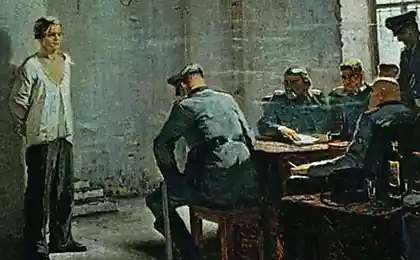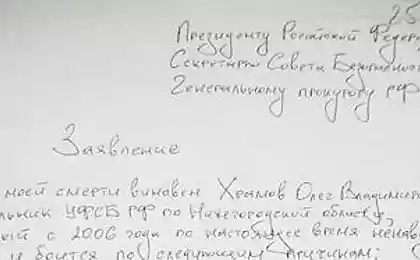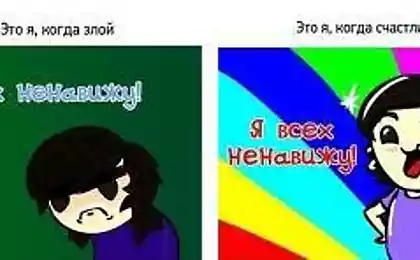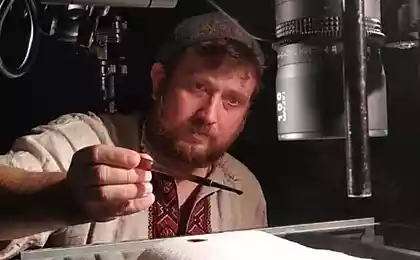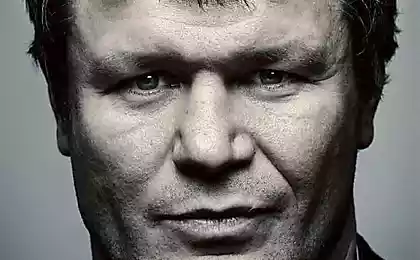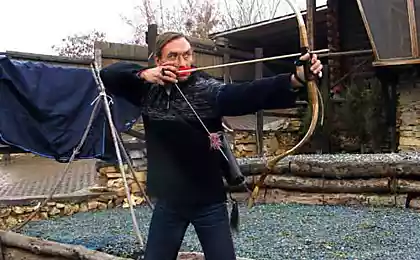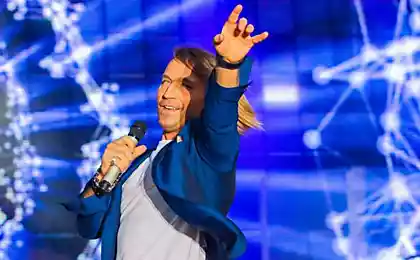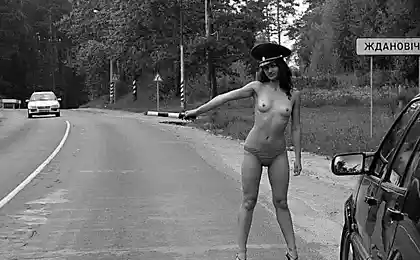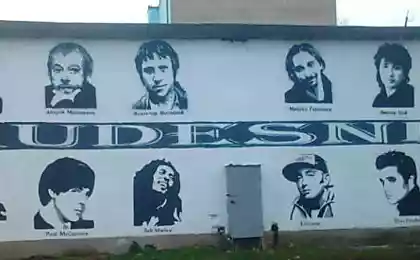852
7 reasons of patriotism Oleg Mishka
February 9, 1943 in the forest rattlesnake was shot by the Nazis hero Molodogvardeets Oleg Mishka. During the Great War, he chose the path of millions - to fight the enemy by all available means.
8 photo
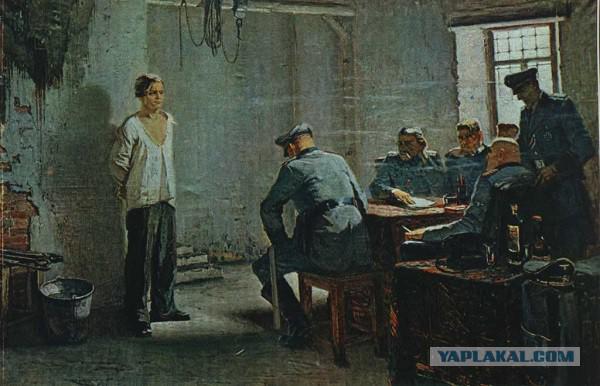
Ancient family
June 8, 1926 in the family of Vasily Fedoseevich Koshevogo and Elena Nikolaevna (nee Korostyleva) son, a descendant of the ancient Cossack Hetman kind. His ancestors faithfully served Peter the Great. This fact was the basis for a number of speculations on behalf of the hero: that it is "petty roots" and "Ukrainian spirituality" Koshevoi allowed to become one of the leaders of the underground and dedicate his life to the idea of the liberation of his native Ukraine. This is partly so because in Koshevogo Ukraine was part of a large country, which suffered a huge disaster. As documented in the memoirs of contemporaries Oleg Mishka remembered as "a true patriot and a faithful son of the Motherland Motherland" - that his parents brought up. 16-year-old man, like millions of Soviet people, guided one - to contribute to the common cause and help the country to win the big one.

Father and son
Married life parents Oleg has not developed. They divorced and dispersed. Oleg nearly two years he lived with his father, but after the death of her second husband moved in with her mother. Relations Oleg with his mother later became hristomatiynym example, while Mishka about his father for a long time was known only that he died after an illness. Why he was "withdrawn" from the family of the hero - until the end is unclear. In his biography there was no incriminating evidence, except perhaps one, and that is very controversial. He divorced the mother of a future hero, however, suggest that the initiator of the divorce could be the mother of Oleg. Whatever it was, but Oleg equally strong love and the father and the mother. He breathlessly listened to his father's stories about Zaporozhye Sech, the victory of the Russian army at Poltava. It is in the retelling of the boy's father first heard the tragic story of Taras Bulba, full of genuine patriotism. However, because of their age, Oleg sometimes forgot about the respect for parents: broken taboos, he came well after midnight. But all my life dearly loved son of his father and tried as much as possible to maintain contact with him.

Sissy?
Son with genuine warmth toward his mother - Elena Nikolayevna, who would later become the faithful keeper of the memory of the only son. A teacher by training, Elena always found a common language with his son, was fair and paid great attention to his education, encouraging his interests. Often, their house was full of friends Oleg - he liked the friendly and welcoming atmosphere. Son appreciated everything he did for his mother and tried to repay her in kind. He was not a mama's boy, just try not to give a loved one sorrow, listened to her advice, but often acted as he thought was right. He saw her as a loyal friend who will support in any situation - what happened when the Young began to gather in the house of Oleg Mishka. However, when one day the Komsomol brought into the house of Elena Nikolaevna the red flag, she asked them a fright carry dangerous character. Charges sounding sometimes against the mother of Oleg Mishka remain on the conscience of those who utters them. Elena would later write, "The Story of Son", which surely will be interesting to the modern reader.

EXAMPLE all the guys!
Oleg was an example to follow. He wrote poetry and painted. In the 7th grade in one of his poems he was awarded the book Ostrovsky "How the Steel Was Tempered." I read a lot. Among his favorite authors were Alexei Tolstoy and Gorky, Pushkin and Lermontov, Jack London and George Byron. As an excellent shooter, he was awarded the badge "Voroshilov Sharpshooter" - from fifty 48 shots hit the target. He loved to dance, especially the "Tango roses." I played volleyball and football. It was neat, his shoes were always thoroughly cleaned and pants - naglazheny (by the way, stroking them, Oleg himself). He learned to swim at an early age and was later admitted to the DOSAAF and worked as a lifeguard at the station. He studied well, was diligent and industrious. Willing to help those lagging behind - according to the memoirs of contemporaries number of his patronage reached seven. He was editor of the school wall newspaper, and later to the hospital wounded edited the satirical newspaper "Crocodile", prepared "lightning" with reports from the front. He was always true to his word: Said - done, and tried to be in the thick of things.
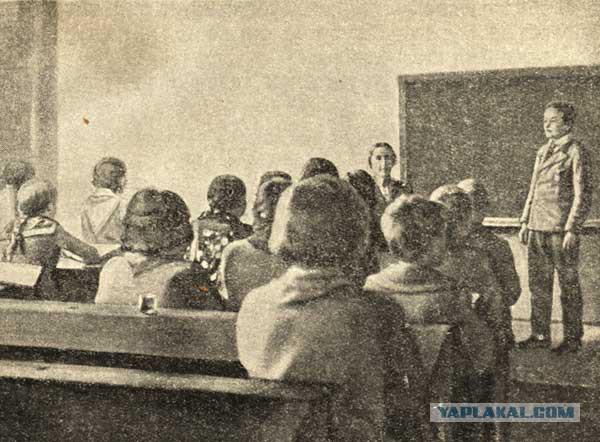
LEADER
Leadership makings Koshevogo detected in the early years. As a child, he became the head of gang kids. Up to something "war Shchors", while himself out of despair grew Petlyura (one of his friends the role of the enemy not play like, and without an enemy, thought little Oleg impossible - who then will beat schorsovtsy?) Was trying to organize a "farm" and long sought out wanting to become "loafers", without which none of the farm, according to him, do not think. It is easy to converge with people able to speak openly and clearly was an interesting conversationalist, both peers and adults. All these qualities are later helped him become one of the leaders of the underground youth organization. The debate about whether Oleg Mishka organizer of the "Young Guard", sometimes reach absurd and offensive conclusions. During the occupation of the Komsomol, of course, could not stay away. In August 1942 in Krasnodon began to be created a few anti-fascist group - "Star", "Hammer", "The Hammer." At the head of one of these groups and was Oleg Mishka. Later groups were united in the organization "Young Guard", and Oleg Mishka, as one of the leaders became its commissioner. He attended meetings of staff, makes sensible suggestions, coordinated the work of the group.
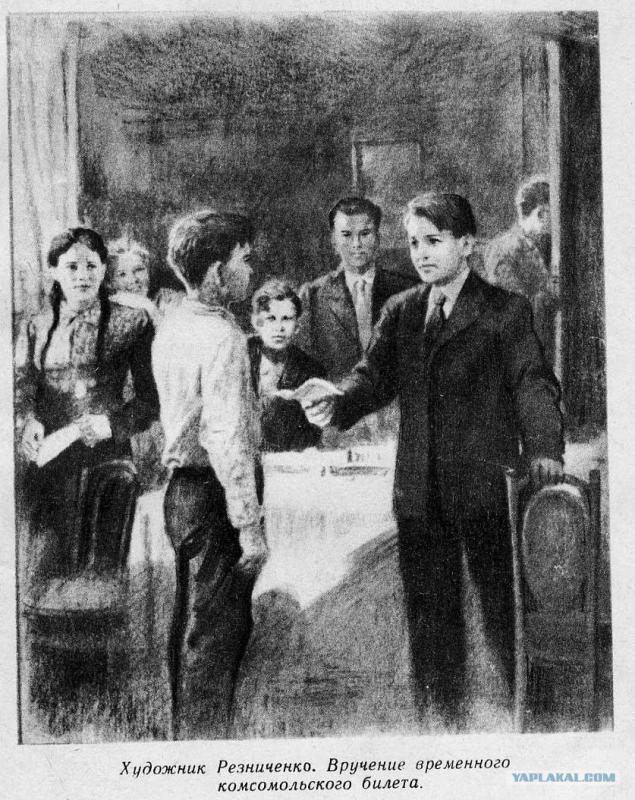
Death to the enemies!
Sometimes you can find conclusions "historians" who claim that there was no "Young Guard", and even if it was, then it was engaged in something of a "minor" pasting leaflets. It is difficult to imagine what the students had to go yesterday to convey to the people the "little message." Meanwhile, there is documentary evidence that the activities of the Young was more than real. Here are just a few: the destruction of bread, preparing for sending to Germany, lynching of policemen, the undermining of the car with German officers, the murder of the guards and the dispersal of livestock herds, the burning of the Labour Exchange and the salvation of the Soviet people preparing to be sent to work in Germany. Oleg Mishka was not only the initiator of many operations, but also their immediate supervisor and the contractor. It seems that sometimes the Young forget about safety and caution: on the night of 6 November 7, they hung red flags in Krasnodon, thereby almost openly declaring its existence and ongoing struggle. This action was not wearing a practical nature, but has been extremely important in the psychological sense: people are clearly aware that it is not forgotten that there are a number of forces capable of fighting and resistance.

The absurdity or fate?
In early 1943, the activities of the "Young Guard" has been disclosed, the arrests began. Young Guards were ordered to form small groups, Krasnodon leave and move to the front line. One such group is Oleg Mishka. However, the attempt failed - January 11, 1943 Oleg grown weak and exhausted, returned to Krasnodon. The next morning, he decided to try again, but at a station near Rovenki Koshevogo detained by gendarmes. He could have avoided the bloody fate - young age (at the time of the occupation Oleg was only 16) would play into his hands. It could very well release, if the ticket was not detected Komsomolets, with whom Oleg refused to leave despite the order of the guidelines and the requirements of secrecy. In addition, if it were found Printing "Young Guard", and blank forms of temporary certificates of the Young. Why Koshevoy violated an order? Of course, he knew that if gets caught, evidence of his involvement in the anti-fascist activity will certainly be found. I would like to try their luck, displaying boyish, or could not do otherwise, while remaining faithful to the idea to the end? In one of the interrogations, he introduced himself as the head of the "Young Guard" - and this put a fat point in his sentence.

Source:
8 photo

Ancient family
June 8, 1926 in the family of Vasily Fedoseevich Koshevogo and Elena Nikolaevna (nee Korostyleva) son, a descendant of the ancient Cossack Hetman kind. His ancestors faithfully served Peter the Great. This fact was the basis for a number of speculations on behalf of the hero: that it is "petty roots" and "Ukrainian spirituality" Koshevoi allowed to become one of the leaders of the underground and dedicate his life to the idea of the liberation of his native Ukraine. This is partly so because in Koshevogo Ukraine was part of a large country, which suffered a huge disaster. As documented in the memoirs of contemporaries Oleg Mishka remembered as "a true patriot and a faithful son of the Motherland Motherland" - that his parents brought up. 16-year-old man, like millions of Soviet people, guided one - to contribute to the common cause and help the country to win the big one.

Father and son
Married life parents Oleg has not developed. They divorced and dispersed. Oleg nearly two years he lived with his father, but after the death of her second husband moved in with her mother. Relations Oleg with his mother later became hristomatiynym example, while Mishka about his father for a long time was known only that he died after an illness. Why he was "withdrawn" from the family of the hero - until the end is unclear. In his biography there was no incriminating evidence, except perhaps one, and that is very controversial. He divorced the mother of a future hero, however, suggest that the initiator of the divorce could be the mother of Oleg. Whatever it was, but Oleg equally strong love and the father and the mother. He breathlessly listened to his father's stories about Zaporozhye Sech, the victory of the Russian army at Poltava. It is in the retelling of the boy's father first heard the tragic story of Taras Bulba, full of genuine patriotism. However, because of their age, Oleg sometimes forgot about the respect for parents: broken taboos, he came well after midnight. But all my life dearly loved son of his father and tried as much as possible to maintain contact with him.

Sissy?
Son with genuine warmth toward his mother - Elena Nikolayevna, who would later become the faithful keeper of the memory of the only son. A teacher by training, Elena always found a common language with his son, was fair and paid great attention to his education, encouraging his interests. Often, their house was full of friends Oleg - he liked the friendly and welcoming atmosphere. Son appreciated everything he did for his mother and tried to repay her in kind. He was not a mama's boy, just try not to give a loved one sorrow, listened to her advice, but often acted as he thought was right. He saw her as a loyal friend who will support in any situation - what happened when the Young began to gather in the house of Oleg Mishka. However, when one day the Komsomol brought into the house of Elena Nikolaevna the red flag, she asked them a fright carry dangerous character. Charges sounding sometimes against the mother of Oleg Mishka remain on the conscience of those who utters them. Elena would later write, "The Story of Son", which surely will be interesting to the modern reader.

EXAMPLE all the guys!
Oleg was an example to follow. He wrote poetry and painted. In the 7th grade in one of his poems he was awarded the book Ostrovsky "How the Steel Was Tempered." I read a lot. Among his favorite authors were Alexei Tolstoy and Gorky, Pushkin and Lermontov, Jack London and George Byron. As an excellent shooter, he was awarded the badge "Voroshilov Sharpshooter" - from fifty 48 shots hit the target. He loved to dance, especially the "Tango roses." I played volleyball and football. It was neat, his shoes were always thoroughly cleaned and pants - naglazheny (by the way, stroking them, Oleg himself). He learned to swim at an early age and was later admitted to the DOSAAF and worked as a lifeguard at the station. He studied well, was diligent and industrious. Willing to help those lagging behind - according to the memoirs of contemporaries number of his patronage reached seven. He was editor of the school wall newspaper, and later to the hospital wounded edited the satirical newspaper "Crocodile", prepared "lightning" with reports from the front. He was always true to his word: Said - done, and tried to be in the thick of things.

LEADER
Leadership makings Koshevogo detected in the early years. As a child, he became the head of gang kids. Up to something "war Shchors", while himself out of despair grew Petlyura (one of his friends the role of the enemy not play like, and without an enemy, thought little Oleg impossible - who then will beat schorsovtsy?) Was trying to organize a "farm" and long sought out wanting to become "loafers", without which none of the farm, according to him, do not think. It is easy to converge with people able to speak openly and clearly was an interesting conversationalist, both peers and adults. All these qualities are later helped him become one of the leaders of the underground youth organization. The debate about whether Oleg Mishka organizer of the "Young Guard", sometimes reach absurd and offensive conclusions. During the occupation of the Komsomol, of course, could not stay away. In August 1942 in Krasnodon began to be created a few anti-fascist group - "Star", "Hammer", "The Hammer." At the head of one of these groups and was Oleg Mishka. Later groups were united in the organization "Young Guard", and Oleg Mishka, as one of the leaders became its commissioner. He attended meetings of staff, makes sensible suggestions, coordinated the work of the group.

Death to the enemies!
Sometimes you can find conclusions "historians" who claim that there was no "Young Guard", and even if it was, then it was engaged in something of a "minor" pasting leaflets. It is difficult to imagine what the students had to go yesterday to convey to the people the "little message." Meanwhile, there is documentary evidence that the activities of the Young was more than real. Here are just a few: the destruction of bread, preparing for sending to Germany, lynching of policemen, the undermining of the car with German officers, the murder of the guards and the dispersal of livestock herds, the burning of the Labour Exchange and the salvation of the Soviet people preparing to be sent to work in Germany. Oleg Mishka was not only the initiator of many operations, but also their immediate supervisor and the contractor. It seems that sometimes the Young forget about safety and caution: on the night of 6 November 7, they hung red flags in Krasnodon, thereby almost openly declaring its existence and ongoing struggle. This action was not wearing a practical nature, but has been extremely important in the psychological sense: people are clearly aware that it is not forgotten that there are a number of forces capable of fighting and resistance.

The absurdity or fate?
In early 1943, the activities of the "Young Guard" has been disclosed, the arrests began. Young Guards were ordered to form small groups, Krasnodon leave and move to the front line. One such group is Oleg Mishka. However, the attempt failed - January 11, 1943 Oleg grown weak and exhausted, returned to Krasnodon. The next morning, he decided to try again, but at a station near Rovenki Koshevogo detained by gendarmes. He could have avoided the bloody fate - young age (at the time of the occupation Oleg was only 16) would play into his hands. It could very well release, if the ticket was not detected Komsomolets, with whom Oleg refused to leave despite the order of the guidelines and the requirements of secrecy. In addition, if it were found Printing "Young Guard", and blank forms of temporary certificates of the Young. Why Koshevoy violated an order? Of course, he knew that if gets caught, evidence of his involvement in the anti-fascist activity will certainly be found. I would like to try their luck, displaying boyish, or could not do otherwise, while remaining faithful to the idea to the end? In one of the interrogations, he introduced himself as the head of the "Young Guard" - and this put a fat point in his sentence.

Source:





